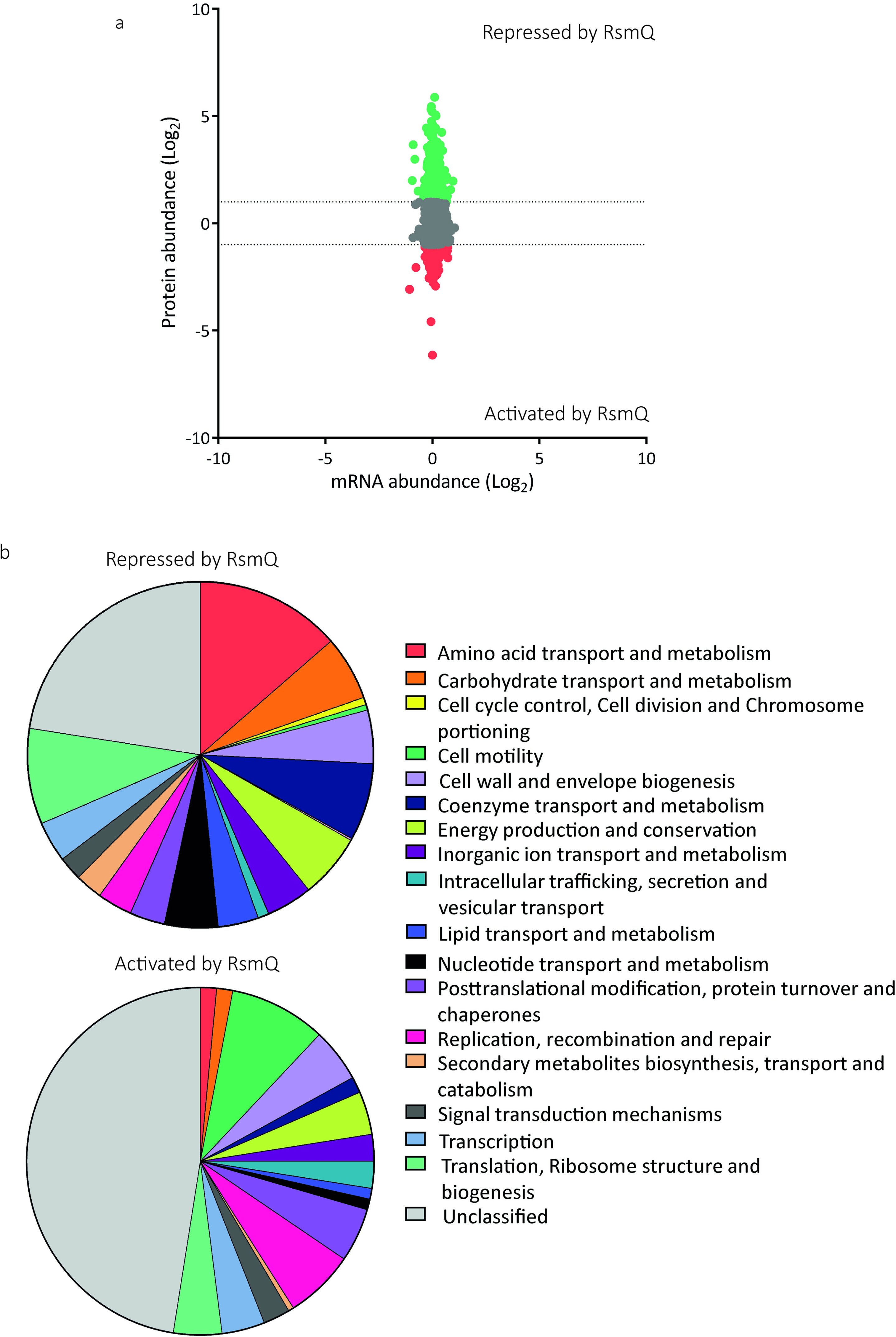博文
质粒宿主操纵发现挑战生物学教科书
 精选
精选
||
质粒宿主操纵发现挑战生物学教科书
诸平

据约翰·英纳斯中心(John Innes Centre)2023年2月14日报道,质粒宿主(Plasmid-host)操纵发现挑战生物学教科书(Plasmid-host manipulation discovery challenges biology textbooks)。
细菌可以相互传递遗传信息,从而在生存环境中胜过竞争对手。其中一种方法是转移偶联质粒(transferring conjugative plasmids)——可移动的独立DNA片段——通常赋予携带它们的细菌一种有益的特性,例如在抗生素存在下能够存活,或者增强在植物中定居的能力。
然而,有时这些质粒可以长期存活,而对宿主没有任何明显的好处。直到现在,人们还没有完全了解为什么会发生这种情况,以及质粒在多大程度上可以操纵细菌中的基因表达。
约翰·英尼斯中心的雅各布·马龙研究小组(Jacob G. Malone group)的研究为这种关系提供了新的线索。这为更好地了解质粒传播和持续性提供了机会,包括深入了解病原体和多药耐药质粒之间的相互作用如何在临床上导致抗生素耐药性。相关研究结果于2023年2月14日已经在在《公共科学图书馆·生物学》(PLoS Biology)杂志网站发表——Catriona M. A. Thompson, James P. J. Hall, Govind Chandra, Carlo Martins, Gerhard Saalbach, Supakan Panturat, Susannah M. Bird, Samuel Ford, Richard H. Little, Ainelen Piazza, Ellie Harrison, Robert W. Jackson, Michael A. Brockhurst, Jacob G. Malone. Plasmids manipulate bacterial behaviour through translational regulatory crosstalk. PLoS Biology,Published: February 14, 2023. 21(2): e3001988. DOI: 10.1371/journal.pbio.3001988. https://doi.org/10.1371/journal.pbio.3001988
参与此项研究的有来自英国东英吉利亚大学(University of East Anglia, United Kingdom)、英国利物浦大学(University of Liverpool, United Kingdom)、英国诺维奇约翰·英纳斯中心(John Innes Centre, Colney Lane, Norwich, United Kingdom)、英国谢菲尔德大学(University of Sheffield, United Kingdom)、英国伯明翰大学(University of Birmingham, Edgbaston, Birmingham, United Kingdom)以及英国曼彻斯特大学(University of Manchester, United Kingdom)的研究人员。
这项发表在《公共科学图书馆·生物学》(PLoS Biology)杂志上的研究,研究了一种质粒基因,该基因编码一种叫做RsmQ的蛋白质。
使用土壤细菌荧光假单胞菌(Pseudomonas fluorescens)的实验表明,RsmQ可以控制宿主细菌如何感知外部环境。当质粒含有RsmQ时,细胞的反应不同,在不同的食物来源下存活得更好,移动得更少。
结果表明,质粒能比以前观察到的更大程度上调节和操纵细菌的行为。
“这项研究最令人兴奋的事情是看到质粒能够完全重新连接宿主细胞,”第一作者卡特里娜·汤普森(Catriona M. A. Thompson)博士解释说,“这意味着质粒可以在细菌种群中移动,改变宿主在实验室和土壤中的行为方式。这可能会影响我们对质粒如何持续存在和改变细菌在环境中的行为的理解。”
研究报告称,RsmQ是首个质粒编码的全局调节因子,这种蛋白能够开启和关闭其他蛋白质,从而改变细胞的行为。
“这些全球调节因子的存在表明质粒和宿主之间存在着更多的共生关系(symbiotic relationship),”卡特里娜·汤普森博士解释道。“这对我们通常认为质粒的方式提出了挑战,即只有当它们对细菌有益时,质粒才会存在。”
发现RsmQ存在于许多大型偶合质粒中,包括其他环境和临床相关的质粒。
如果我们能理解这种蛋白质是如何影响质粒行为的,这将对临床上解决抗生素耐药性(antibiotic resistance)以及作物保护和生产都有意义。
本研究得到了英国应用生物学和生物科学研究理事会(BBSRC Responsive mode Grant BB/R018154/1, BB/R014884/1;BBSRC Institute Strategic Programme Grant BBS/E/J/000PR9797;UKRI-BBSRC Grant BB/T004363/1; BBSRC grants BB/R014884/2, BB/R018154/1,BB/T010568/1)、英国国家环境研究委员会(NERC grants NE/R008825/1, NE/R008825/2;NERC Independent Research Fellowship NE/P017584/1)的资助或支持。
上述介绍,仅供参考。欲了解更多信息,敬请注意浏览原文或者相关报道。
Beyond their role in horizontal gene transfer, conjugative plasmids commonly encode homologues of bacterial regulators. Known plasmid regulator homologues have highly targeted effects upon the transcription of specific bacterial traits. Here, we characterise a plasmid translational regulator, RsmQ, capable of taking global regulatory control in Pseudomonas fluorescens and causing a behavioural switch from motile to sessile lifestyle. RsmQ acts as a global regulator, controlling the host proteome through direct interaction with host mRNAs and interference with the host’s translational regulatory network. This mRNA interference leads to large-scale proteomic changes in metabolic genes, key regulators, and genes involved in chemotaxis, thus controlling bacterial metabolism and motility. Moreover, comparative analyses found RsmQ to be encoded on a large number of divergent plasmids isolated from multiple bacterial host taxa, suggesting the widespread importance of RsmQ for manipulating bacterial behaviour across clinical, environmental, and agricultural niches. RsmQ is a widespread plasmid global translational regulator primarily evolved for host chromosomal control to manipulate bacterial behaviour and lifestyle.
https://m.sciencenet.cn/blog-212210-1376556.html
上一篇:欧美PFAS污染研究二三事
下一篇:核聚变:历史性突破